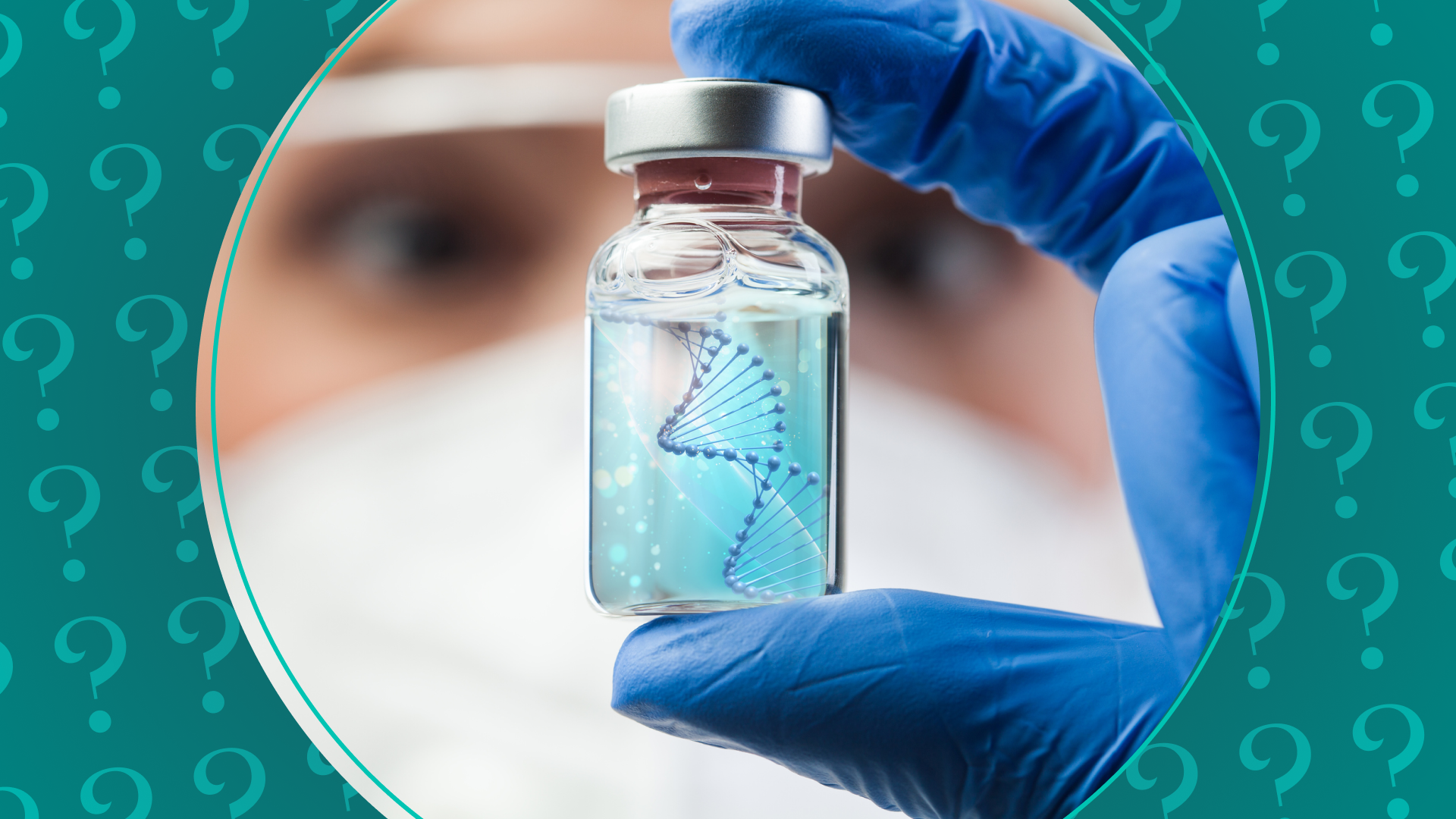From 23andMe to dog DNA tests, genetic testing is hot right now. But beyond your family tree, what can you learn about your health from genetic testing? For example, what diseases can be detected through genetic testing, and can it predict what health problems you will or won’t have down the road? We asked Amanda Gerard, MS, a certified genetic counselor at Baylor College of Medicine, how genetic testing can impact your health. Stay tuned, because just like genetic test results, there’s a lot to unpack here.
Featured Expert:

Amanda Gerard, MS - Certified genetic counselor at Baylor College of Medicine
theSkimm: What can be diagnosed by genetic testing?
Gerard: “There are a lot of types of conditions and diseases that can be diagnosed by genetic testing. Diagnostic genetic tests … determine whether someone has a specific genetic condition. Down syndrome is one example of that. Receiving a genetic diagnosis can help guide medical care and provide information about what to expect in the future.
“[Predictive genetic tests] often focus on conditions that can happen later in somebody's life and adulthood. They show whether a person might be at increased risk to develop specific types of health issues or diseases. Common examples of these are cancer or heart problems. With predictive genetic tests, they typically don’t mean that somebody will develop a specific disease, only that they have an increased risk to develop that disease at some point during their lifetime. That information can be used to help guide their medical care and, potentially, screening options or lifestyle choices.
“Another common genetic test for anyone considering having children is called carrier screening. That's a genetic test people can have either before or while they're pregnant to check for whether [they’re] carriers of specific genetic conditions that could be passed down to the child.
“One of the clear positives [of genetic testing] is that it can give lifesaving information. It can provide you with information about specific risks to your health. For example, if we find that somebody has a high risk [of developing] breast cancer during their life, they may need more frequent mammograms or they may need to start those at earlier ages.
“Many health issues can be influenced both by genetic and nongenetic factors. While genetic tests can be helpful in giving us information about [the risks of developing] different symptoms or diseases, they generally don't provide completely definitive information about whether somebody will absolutely have some specific health concern during their life. If results aren't interpreted correctly, they may also provide false reassurance or [unfounded] anxiety.
“If somebody is considering whether they want to do a certain type of genetic test … it can be beneficial to meet with a genetics provider — that could be a genetic counselor or a geneticist — to talk about appropriate options, depending on the specific type of information that they're looking for.”
Ask an Expert is for informational purposes only, does not constitute medical advice, and is not a substitute for professional medical advice, diagnosis, or treatment. Always seek the advice of your physician, mental-health professional, or other qualified health provider with any questions you may have regarding a medical condition. By submitting a question, you are agreeing to let theSkimm use it—in part or in full—and we may edit its answer for length and/or clarity.
Live Smarter
Sign up for the Daily Skimm email newsletter. Delivered to your inbox every morning and prepares you for your day in minutes.






